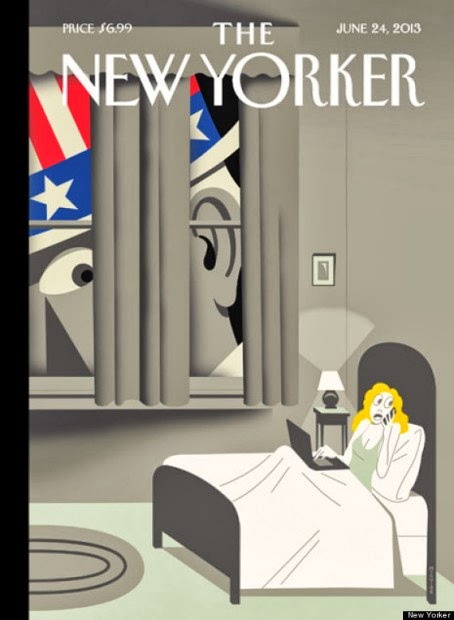Edited by Brent Landon

With the major currents of this era carrying the world toward peace, development, cooperation and mutual benefit, leading the pack commands boundless respect. But there is also some satisfaction to be had in simply playing one’s part, however great or small. One hopes that the U.S. will learn something from the PRISM affair.
The fiasco has become nothing less than a political tsunami. Both moral criticism from within and without, as well as a strong backlash from European allies have put Washington ill at ease. Justifications such as the requirements of the war on terror and national security are fragile and provide little basis on which to lay claim to having the will and courage to change. The U.S. government is thus left with no choice but to suppress each matter as it arises.
And what should happen under these circumstances, but that there should come these statements from within the U.S.: “There is no country on the face of the planet who does not receive some level of attention from the U.S. intelligence community. We have to because we are one of the few global superpowers left on the planet.” And “every country has weapons for spying, but most have the equivalent of a howitzer. In terms of eavesdropping, the U.S. has a nuclear weapon.”
The message could not be clearer: There is no need for alarm when the all-powerful U.S. bends the rules, for the U.S. is exempt!
The mark of this “exceptionalism” has never faded entirely from American politics. In 2009, when asked by a reporter from the U.K.’s Financial Times whether or not he believed in American exceptionalism, Obama replied that his stance was the same as that of the British toward British exceptionalism or the Greeks toward Greek exceptionalism. The implication was that the U.S. is really not all that special. As soon as the words left his mouth, the pressure was on. A review from The New York Review of Books later quipped that Obama only came to understand the power of exceptionalism in American politics after paying a hefty tuition fee.
The world now exists in a rather sensitive transformative stage, and what role the U.S. will play is a problem to be addressed by both the U.S. itself and the rest of the globe. The logic is simple. The U.S. remains the most powerful nation in the world and still serves as a leader in many facets of the international system. Whether or not this transformative period will be navigated smoothly and maintain momentum is, to a considerable degree, dependent upon the actions of the U.S. But great strength and position do not grant the U.S. the freedom to act willfully and recklessly in the manner of a spoiled child. After all, U.S. interests span the globe, and to effectively protect these interests, the U.S. is often the nation most invested in maintaining stability within the current system of international relations.
While analyzing trends in global stability and prosperity, noted National University of Singapore academic Kishore Mahbubani focused his attention on whether or not the U.S. would be able to regain its moral authority. That there is no moral authority to be found within the whole of the PRISM affair is quite clear, as what has come to light instead has been America’s unbridled arrogance and lack of good faith. Georgetown University Professor Rosa Brooks once described the dangers of U.S. self-indulgence by likening the nation to a “wounded giant … steadily weakening, but still strong enough to hurt a lot of people as [it flails] around.”
In fact, Professor Brooks’ metaphor could be taken further to say that the victims of said drubbing have now become rather incensed and that their anger will only cause greater pains for the wounded giant.
Whether it is the remolding of the national modus operandi or an evolution in the rules of the international game, there are complex interests at work and painful psychological adaptations to be made.
However, the world has already stepped into a new age, and change will come regardless of the enthusiasm with which it is received. Precisely as Harvard University Professor Stephen Walt pointed out, “America has its own special qualities, as all countries do, but it is still a state embedded in a competitive global system.”
In the ever-shrinking global village, “exceptionalism” should have been relegated to a museum exhibit long ago. Reliance on brute force to seize power as the village chief and the exercise of savage control over its residents will similarly become relics of the past, and the U.S. too will have to abide by the “village rules.”
The transformation of a single society can be a tumultuous journey, and for such a vast world to metamorphose without incident is an even more unlikely prospect. The PRISM affair is naturally not a proud moment in American history, but at this point, all that can be done is to muster courage and face the music. There is a certain wisdom to be found in making the best of a bad situation. One hopes that the U.S. will learn something from it.

Leave a Reply
You must be logged in to post a comment.